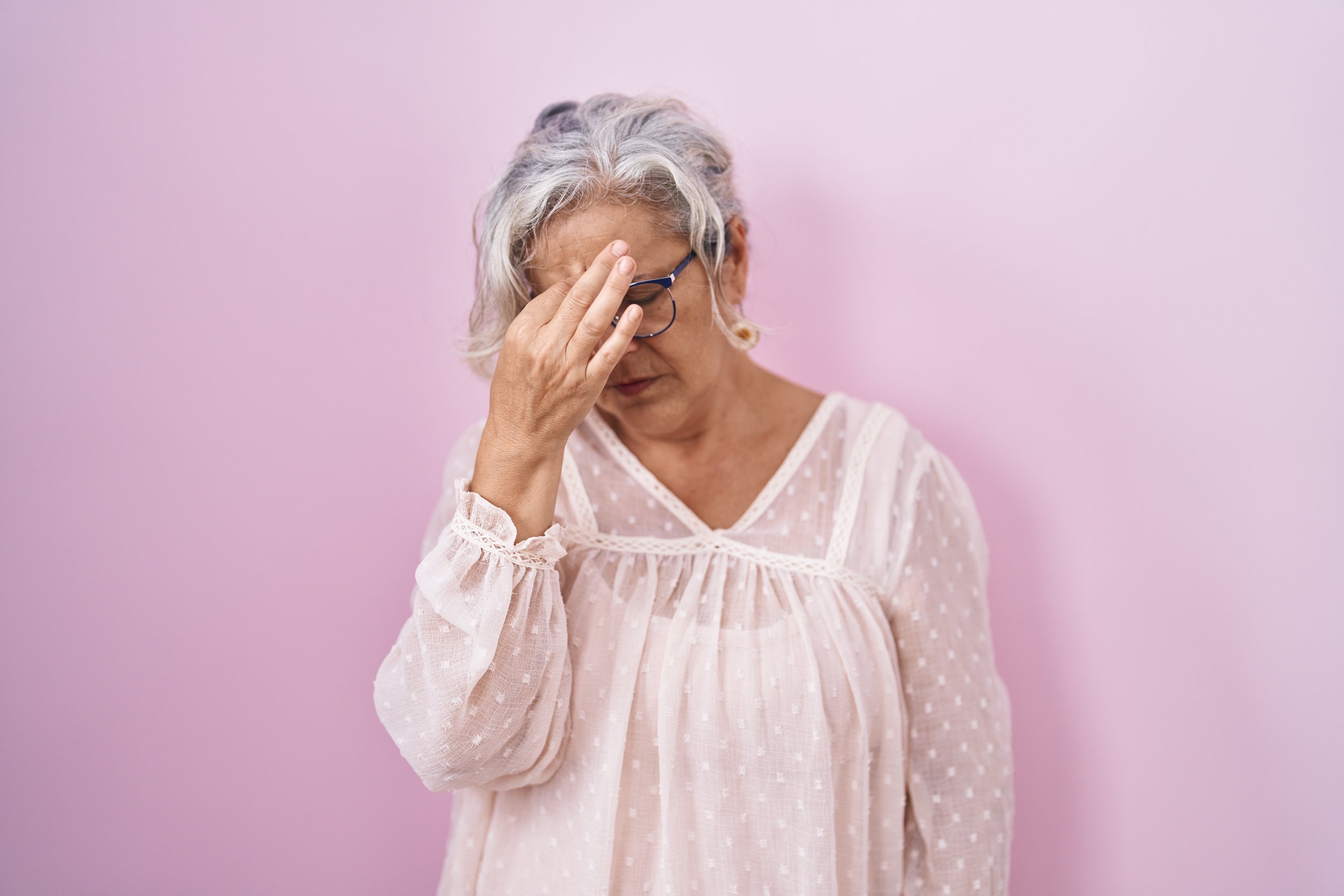
There is ongoing conversation (often disagreement) around the role menopause in and of itself, plays in women’s mental health. Some say mental health challenges are quite common in menopause. Others say, there is no evidence to suggest mental health issues are common but that there are particular at-risk groups.
I’m not known to be a fence sitter. As someone who has been appointed Court Expert in many matters throughout my career, I’m prepared to make a call and have an opinion. However, when it comes to menopause and mental health some might say I AM a fence sitter. And this is because I see women who meet diagnostic criteria such that they can be diagnosed with a mental health disorder. I also see many women who need psychological support despite ‘falling short’ by one, two or maybe even three criteria. In other words, a subclinical presentation.
What I want to highlight however, is that if you asked any of these clients, ‘has your mental health suffered due to menopause?’, all would say an emphatic yes. Many women in the community would also answer ‘yes’ were you to ask them the same question. Coincidentally, I’d say that my clinical experience is consistent with the findings from Dr Linda Dear’s Australian Survey. Dr Dear surveyed over 1500 Australian women and amongst many important findings, this survey revealed that two thirds reported that menopause has negatively impacted their mental health (low mood, anxiety). Would they all meet diagnostic criteria? Most likely not. But their experience is theirs to define. Not mine.
And with this train of thought, I notice my mind wandering back to my time in the perinatal world. What struck me when I began that work was that if women ‘failed’ to meet the criteria for PTSD (even if by one criterion) then their trauma wasn’t recognised as such. You can imagine the distress, anger and confusion this created. Over time, with increasing advocacy, the perspective changed. Now there is increasing recognition that if a woman says she’s traumatised from birth - she’s traumatised.
We need to afford women navigating the menopausal years the same respect. That is, respect for their experience of menopause as defined by them. Each individual is the expert in their experience. Not you. Nor I. Whether they meet the diagnostic criteria or not.
As a scientist-practitioner, I DO appreciate that definitions of terms and standardised systems of diagnosis are important. When we undertake research and then talk about it, we need to make sure we’re all talking about the same thing, don’t we? But when these discussions hit mainstream media, we actually aren’t always talking about the same thing. Terms get ‘thrown about’ and the details provided within the study that seem unimportant, are not shared. So in many cases, as readers, we aren’t necessarily thinking similarly. How do you define depression and disorder? It’s probably different to how I define them.
But I also want to raise another musing that I’ve had of late. Let me first state that the research I typically read defines terms like ‘depression’ and ‘mental health disorder’ using the diagnostic systems common to health professionals (either DSM-V or ICD-11). So terms like depression, are in most instances, referring to Major Depressive Disorder. Before I go further I do want to add that the experience of menopausal depression tends to ‘look’ different to Major Depressive Disorder. It’s critical to know this difference.
However, I want to highlight the sub-clinical experiences of mental health issues because in my experience these presentations are very common. Unfortunately, there is very limited research, let alone conversation, about these experiences that don’t quite meet clinical benchmarks. Not only do these sub-clinical experiences impact women’s wellbeing, I wonder whether they can (at times) reflect the early stages of what might progress to a far more challenging mental health (diagnose-able) condition. It’s these two points that lead me to believe we must also undertake research on these subclinical presentations and that they must be included in the menopause conversation.

This could (and should) begin with research which asks women to share their psychological and emotional experiences in the menopausal transition. Doing so will capture the range of mental health issues which will then help us understand the nuances of mental health during menopause. What’s fascinating to me is the range of literature, not research, available discussing women’s experiences of menopause (and midlife). Whether written by journalists, anthropologists, sociologists, feminists, these books consistently draw from interviews conducted by the author/s with women at various stages of the menopausal transition. Such literature provides a deeper understanding of the spectrum of experiences, from those who have a completely unremarkable menopause to those who suffer greatly and all the experiences in between.
Yes, research is showing us that our hormones play a significant role in our mental health - across disorders and across our lifespan - and therefore during the menopausal transition. AND they also give rise to a deep and lengthy psychological developmental transition.
This is very rarely mentioned in the various menopause narratives - positive or negative. And just quietly, or not so quietly, this drives me nuts. It’s the equivalent of disregarding the significant psychological processes, shifts, struggles and growth at play during puberty or pregnancy/early motherhood (matrescence). We wouldn’t dream of reducing these experiences to ‘just’ hormones. We recognise that these biological events are also psychological and developmentally significant - because they shape WHO we become and HOW we live in the world.
However, we continuously reduce the menopausal years in this way.
There is limited conversation that this natural neuroendocrine process - resulting in increased neuro-plasticity as well as the decline in oestrogen itself (the hormone of accommodation which sees us prioritise the care of others) - actually creates an environment of vulnerability AND also an environment for opportunity.
And there is NO conversation about how this provokes a re-exploration of, and changes in, our identity, values, experience of our body, patterns of relating or need for autonomy (often in the face of many hampering role demands). And yet, all these come into sharp focus during these years and are often found to be at odds with this evolving version of ourselves.

More importantly we fail to recognise that this reflects a ‘developmental task’. And developmental tasks are difficult. They cause distress. Often at the subclinical level.
I attended a conference today and one of the key statements was this, ‘if we don’t assess it correctly, we can’t treat it correctly’. Whether clinical or subclinical, it doesn’t mean women aren’t struggling. But it will have some impact on the most effective ways to support them.
So let's be curious about women’s experiences. Let's continue to build our understanding of the ‘pointy end’ of mental health issues (clinical) that do emerge during the menopausal years AND ‘less-pointy’ experiences (subclinical and/or reflective of a process of psychological development). Let’s provide avenues for women to talk. To give them the opportunity to ‘find’ and share their stories and have the conversations that THEY want to have. Doing so is far more likely to capture the extremes and the subtleties of their experience.
Learning All About Her in this way, is the only way we have any chance of supporting all women as they transition through menopause.


Comments